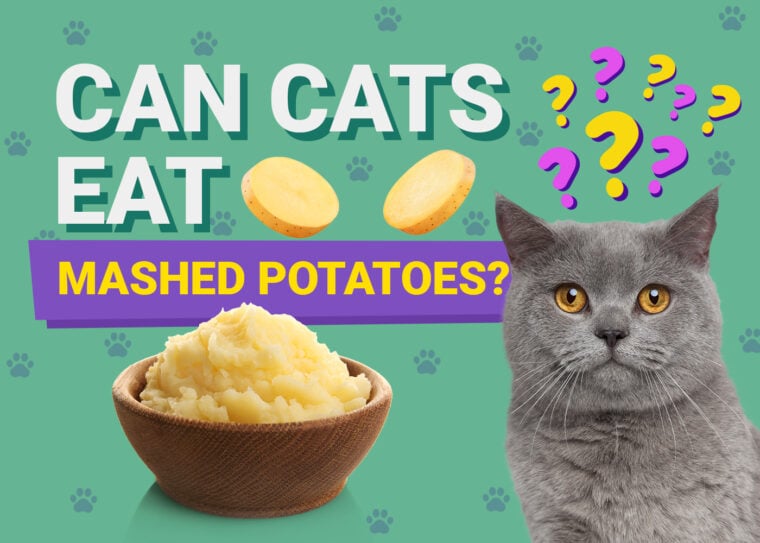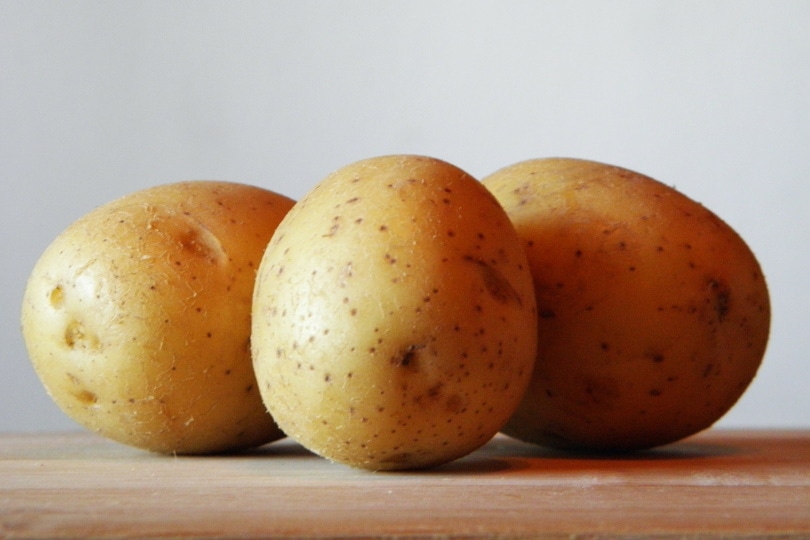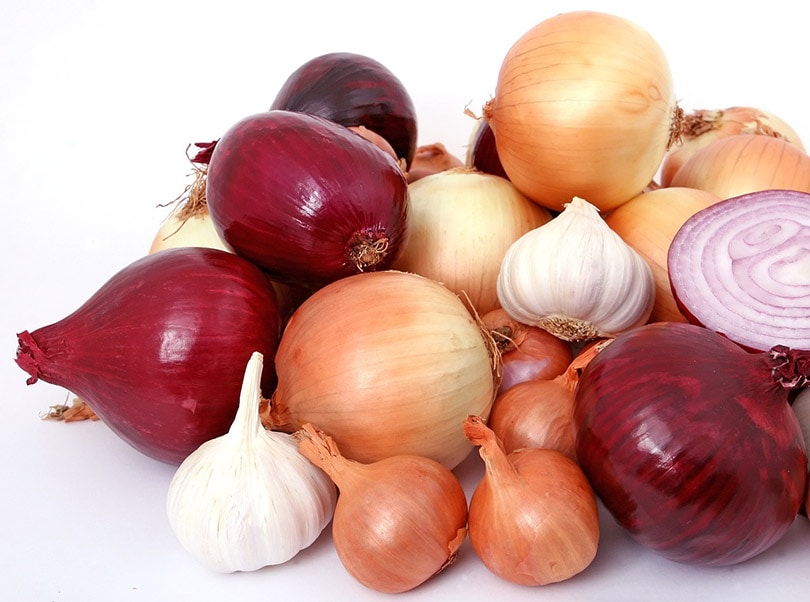
If your cat is always interested in your food, finding the best treats to share can be tricky! If you’ve got a leftovers thief, you might also worry about whether your cat stole a bite of something toxic. But if your cat has a hankering for some mashed potatoes, you might wonder whether it is a safe treat. The short answer is that it depends. A bite of soft, boiled potato on its own isn’t going to hurt your cat. But many other ingredients in mashed potatoes can make your kitty sick.
So, before you give your cat a taste, take a moment to look at what’s in your mashed potatoes and how it compares to healthy cat food.
Breaking Down the Ingredients in Mashed Potatoes
Every family has their own mashed potato recipe—and some are safer than others. Let’s look at what goes into the typical serving of mashed potatoes to see whether your mashed potatoes are safe and healthy.
Potatoes
Potatoes aren’t poisonous for your cat, but they aren’t particularly nutritious. These root vegetables are mostly carbs, with just a little bit of protein and almost no fat. A 100-gram serving of potatoes has only 2 grams of protein. They do have a small amount of many different minerals and vitamins, including calcium, iron, magnesium, and potassium.
Overall, if your cat wants some plain, cooked potatoes, a few bites are fine. But giving your cat too much can be hard on its carb-unfriendly digestive system.

Dairy Products
Most mashed potato recipes also have lots of dairy. Milk, butter, and sour cream—they are all bad news for your cat. Even though people love to feed cats milk, it isn’t very good for them. That’s because most cats are lactose intolerant—eating dairy can give them diarrhea and an upset stomach. Dairy products like butter are also high in fat.
Salt
Cats don’t need the amount of sodium that we eat. In fact, a major danger for cats is sodium poisoning. Just one gram (less than a teaspoon) can be enough to make your cat sick. Hopefully, your potatoes aren’t that salty, but you still want to be careful. Sodium poisoning can lead to seizures, lethargy, vomiting, tremors, dehydration, and a host of other symptoms.

Garlic and Onions
Beware of seasonings! A clove of garlic or some minced onion might add a heavenly flavor to your mashed potatoes, but anything in the onion family is a huge feline no-no. In fact, garlic, onion, leeks, chives, and related foods are highly toxic to cats. Only a few grams of garlic can lead to nausea, vomiting, diarrhea, and irritation. Larger amounts can be even more dangerous. The amount in your potatoes probably won’t be more than mildly harmful to your cat, but it’s better safe than sorry.

What Makes a Good Cat Food?
Let’s look at why mashed potatoes don’t make a very good treat—even if it’s free of harmful ingredients. Cats are obligate carnivores—they need meat to survive and don’t need much of anything else in their diet. Unlike humans, cats don’t get much nutrition from carbs—their stomachs aren’t designed to digest them. Too much starch can be hard for your cat to digest.
Cats need a high-protein diet with moderate fat. Your cat’s food should be about 25% protein and 10% fat. This number varies slightly depending on your cat’s age and activity levels, but that rule of thumb can help you decide how much of a treat is a good thing. Cats also need a variety of vitamins and minerals, just like we do.
Knowing exactly what your feline companion can and cannot eat will help you become the best pet parent. Recognizing that not all cat bowls are equal is also key! The Hepper NomNom Cat Bowl sets itself apart from traditional options by catering to the specific needs of cats. The innovative design offers whisker relief via shallow dishes and promotes digestion with a slight bowl elevation. Find out if the Hepper NomNom is right for your cat by clicking here.
At Pet Keen, we’ve admired Hepper for many years and decided to take a controlling ownership interest so that we could benefit from the outstanding designs of this cool cat company!
Last Thoughts
So, what’s the verdict on mashed potatoes? Not great. A little bit of plain boiled potato isn’t bad for your cat, but anything full of dairy, salt, and seasonings may make your cat sick. If your cat does eat a few bites of your Sunday dinner leftovers, don’t be too worried, but if you know you’re going to be sharing, maybe leave a few teaspoons plain for your kitty.
Featured Image Credit: Sergii Gnatiuk, Shutterstock








